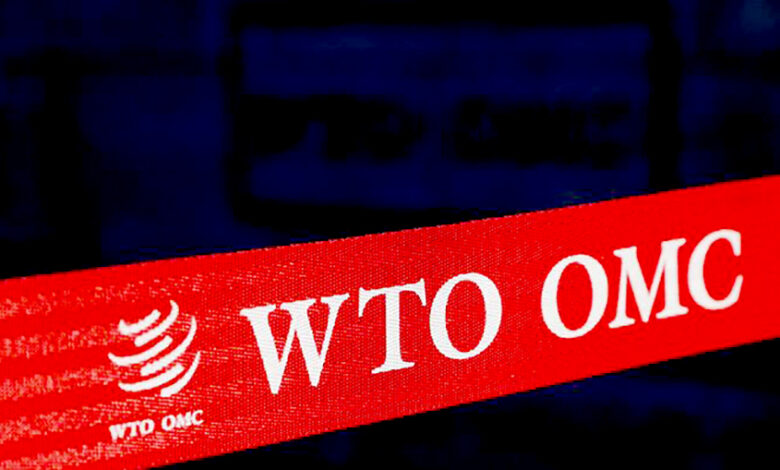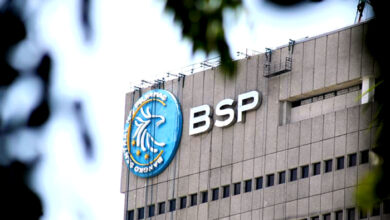As war sparks trade tensions, the WTO tries to make deals on fish and vaccines.

BRUSSELS/GENEVA (Reuters) -This month, the World Trade Organization will bring together ministers from all over the world to try to reach agreements on fish and vaccines. This will be a test of the world’s ability to set trade rules at a time when tensions are rising.
Global trade disagreements, COVID-19, and the fact that its dispute-resolution system was broken had already hurt the Geneva-based organisation, which had to cancel the ministerial conference twice because of the pandemic.
The meeting usually happens every two years, but the last one was more than four years ago. It will now happen after Russia’s invasion of Ukraine caused commodity prices to rise and food export bans to come into effect, and after China’s zero-COVID policy made problems in the global supply chain even worse.
This year, global trade is likely to slow down, and the war in Ukraine is adding to the uncertainty.
In this situation, the ministers will try to wrap up 20 years of talks to reduce subsidies for fishing, reach a deal on a more fair way to share COVID-19 vaccines, push for agricultural trade reform, and set a path for WTO reform.
Dmitry Grozoubinski, Director of the Geneva Trade Platform, said that the MC12 meeting felt “a little bit cursed.”
“This was always going to be a ministerial meeting with, at best, modest results. Things are harder now because of the invasion, but they were not easy before “he said.
Several members have said they won’t talk to Russia, and Moscow is likely to stop any effort by Ukraine’s allies to make a ministerial statement about the crisis, such as how it affects food.
Peter Van den Bossche, who is in charge of studies at the World Trade Institute, said, “In the background, there is the fact that the war in Ukraine could cause a total mess.” “I have no doubt that Russia will show that without it, we can’t move forward.”
DIFFICULT VACCINES, FISH SUBSIDY CONVERSATIONS
At the meeting, ministers should sign a declaration about the role of trade in current and future pandemics. However, a dispute over how to fix vaccine inequity has taken up most of the time, even though the coronavirus crisis is over.
Since 2020, developing countries have tried to get vaccines and other COVID-19 treatments to be free of intellectual property (IP) rights.
India, South Africa, the EU, and the US came up with a compromise on vaccines, but it is still not clear if it will turn into a full agreement.
At the same time, members are working on a deal to stop giving subsidies to fishing fleets. This could be a historic deal that stops the sharp drop in fish stocks.
The transition period for developing countries is a problem that hasn’t been solved yet. Many people say it should be between five and seven years, but some say it should be as long as 25 years.
From what has happened in the past, things don’t look good. In its 27-year history, the WTO has only been able to change its global rules once, with the Trade Facilitation Agreement.
Some people say that the WTO needs an agreement to save fish stocks just as much as the fish does to show that it is still important.
Consensus is always the hardest thing for the WTO to do. One of the 164 people in it can stop a decision from being made.
Different people have different ideas about how well “MC12” will do.
Roberto Azevedo, who was in charge of the WTO from 2013 to 2020 and was from Brazil, said it was “impossible” to reach a consensus today.
“Even when you can see where people agree or where they might agree, you can’t reach a consensus,” he said.
John W. H. Denton, secretary general of the International Chamber of Commerce, said he thought the WTO could come to an agreement on fishing.
THE UNITED STATES VS. CHINA
The government of U.S. President Joe Biden will have a more peaceful tone when it goes to Geneva than the government of his predecessor. But it won’t bring back the WTO’s appeals chamber, which Trump shut down, and says the Geneva-based organisation needs to change.
Washington says that the WTO hasn’t done enough to hold China accountable for unfair trade practises, and it wants the WTO meeting in June to set the stage for a conversation about changing the rules for international trade.
It also says that China should stop being considered a developing country because it is now the second largest economy in the world. When it joined the WTO in 2001, China had the sixth largest economy. At the WTO, there are special rules for developing countries, like giving them more time to carry out agreements.
Pascal Lamy, who was in charge of the WTO from 2005 to 2013, said that its rules weren’t doing enough to deal with current trade barriers.
“Today’s WTO rules are based on the world of 30–40 years ago, when tariffs, subsidies, quotas, and other things made it hard to trade. “These old trade barriers are becoming less and less important,” “he said.
Still, global trade reached a new high of $28.5 trillion in 2021, which was 13% higher than before the pandemic. Most of this trade was based on WTO rules that were already in place.
“In this way, the WTO is still important, but it needs to be more important with new rules,” said Van den Bossche of the World Trade Institute.





